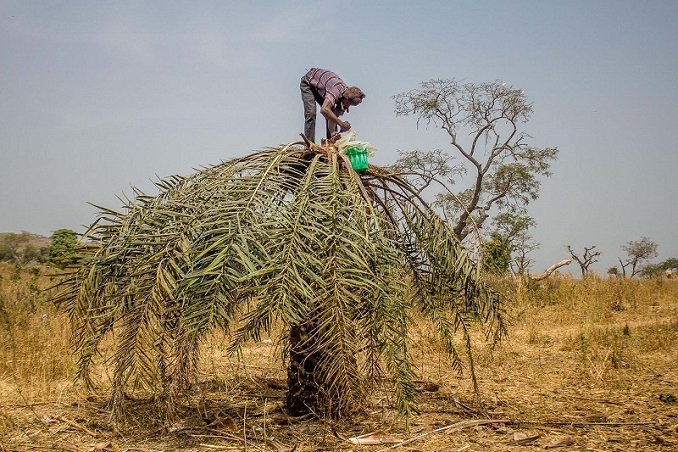![]() Africa – The Central African Republic’s Kapou village has a reputation for producing significant quantities of palm wine. This activity has been the main source of revenue for young and old for decades. Philemon owns and exploits a number of palm trees. Some were passed down from his father, who introduced him to the sport at an early age.
Africa – The Central African Republic’s Kapou village has a reputation for producing significant quantities of palm wine. This activity has been the main source of revenue for young and old for decades. Philemon owns and exploits a number of palm trees. Some were passed down from his father, who introduced him to the sport at an early age.
He was able to start a family and build his own home because of the cash earned from this activity. Philémon Edmond Ballet, a palm wine collector, says, “It’s an occupation that comes from our ancestors. We were born into it, and we grew up, had children, and married our wives into it.” This community also serves as a market for palm wine, which is sold in Bangui, the capital. A man and a woman come here to purchase this beverage, which is subsequently sent and sold elsewhere.
Related Posts
“There are delays that cause problems. Due to the poor condition of the route, we travel slowly. Deliverer and reseller Sylvain Sacko allege, “When we leave here in the morning with our loads, we arrive in Bangui about 1 or 2 pm.” In the Central African Republic, palm wine is a highly appreciated alcoholic beverage. It is also extensively used at ceremonies in place of beer, which costs four times as much.
Nicolas Barnes, the client, has his own explanation. “When you drink palm wine, you sleep and wake up without aches, and that’s the reality,” a regular drinker states. “It is safe to assume that palm wine contributes to the Central African economy,” says Africanews reporter Samuel Thierry Nzam in Bangui.

